Essendon fans celebrate another finals appearance. But in 2018 the club must aspire to much more than token spots in September. Photo: AFL MEDIA
It’s time for the Bombers to break the cycle of mediocrity
Should Essendon fail to win the AFL flag again next season, it will 18 years since the Bombers last experienced premiership glory.
This would put the club within touching distance of equaling the longest premiership drought in the club’s history – a 19-year dry spell between Essendon’s 1965 and 1984 grand final victories.
Not only does that signify Essendon’s incredible success over the course of the VFL/AFL competition; it also highlights that the new millennium has been arguably the club’s weakest era.
Once a powerhouse of the competition, Essendon in the 21st century has been a club gradually slipping back towards the seemingly entrenched mediocrity which marked the period before the landmark arrival of Kevin Sheedy as coach in 1981.
The Bombers have not been cellar-dwellers by any means, but rather have consistently failed to turn promise into tangible success.
Essendon hasn’t won a final since 2004, losing four elimination finals along the way, while the club’s grand final drought stretches back to 2001. Gold Coast, part of the AFL for just seven seasons, is the only other club to experience less September success over the same period.
Which makes 2018 a critical year in the club’s history. After another season of promise punctured by an elimination final loss, the time for Essendon to deliver is now, the pieces for success seemingly in place, and any excuses having evaporated.
The Bombers have been lauded as one of the “winners” of this year’s trade period, luring talented trio Jake Stringer, Devon Smith and Adam Saad to the club. It’s an impressive haul.
That trio will add polish to a side boasting a once-in-a-generation key forward in Joe Daniher, an All-Australian key defender in Michael Hurley, and some prodigious midfield talent in Dyson Heppell and Zach Merrett.
As much as the supplements scandal rocked the foundations of a historically stable operation, those players remaining from the CAS suspensions have another year of AFL football under their belts. There’s stability around the club generally, and an experienced coaching hand to guide the ship in John Worsfold.
The materials are there. But what might well be the biggest challenge for the Bombers is to shed a mindset which has long lacked the steeliness which was an Essendon trademark during the 27-season Sheedy era which delivered four premierships and seven grand final appearances.
For too long, Essendon as a club has tip-toed around its chronic lack of success.
One only has to look back upon the player backlash received by club chief executive Xavier Campbell when he issued a mild criticism of the club’s woeful effort against Brisbane in round 15 this year.
Campbell was forced to apologise to the players for tweeting that their performance was “not good enough” and that the side had let their fans down.
It seemed more than a fair statement, especially given the extent to which Essendon’s loyal supporter base has stuck fat with the club through the fall-out of the shambolic supplements regime.
Essendon rightly felt a sense of loyalty and obligation to its suspended players this season, giving some game time to players who were arguably no longer part of its best 22. But that is benevolence it cannot afford to continue into next season.
The Bombers must surely aim to at least win a final in 2018. Yet by no means are their structural weaknesses completely cured by the latest influx of talent.
Essendon still has midfield issues, specifically a lack of the necessary grunt to deliver a flag. There’s a dearth of tough inside midfielders, underlined by their bottom half of the table ranking for both contested ball and clearance last season, and which the retirement of Jobe Watson may potentially only exacerbate.
Essendon has a very solid spine, and its recruits add some tricks, but the crushing elimination final loss to Sydney highlighted that an attacking game style still needs to be complemented by a stronger focus on winning contested ball.
Like plenty of rivals, though, the Bombers may take heart from the examples of the last two premiers, the Western Bulldogs and Richmond, who proved if anything that a team doesn’t have to be faultless in order to achieve success.
In fact, there were some striking similarities between Essendon and Richmond heading into the 2017 season. Both were former powerhouse clubs, who were unable to turn numerous finals appearances into success. Both had fervent support bases which stayed loyal through tough times.
But this year, the Tigers pulled it all together and broke their finals hoodoo. Perhaps Smith, Saad and Stringer can be the savvy pick-ups that propel success, much like Dion Prestia, Toby Nankervis and Josh Caddy proved to be this year.
The first step in the process, however, is to not celebrate just making finals, but only winning them. While the temptation for fans of a club which hasn’t known better for so long is to be content with the achievements of 2017, given the extraordinary circumstances of the Bombers 2016 wooden spoon, is last to eighth really that big a deal?
Essendon in 2018 must deliver tangible rewards, rise above its middle-of-the-road status and prove it can again be a powerhouse again.
Richmond has shown it can be done. And were the Bombers to engineer a similar result, given both the size of their supporter base and the frustrations now lingering for close to two decades, the ensuing celebrations would give even the Tiger Army this year a run for their money.

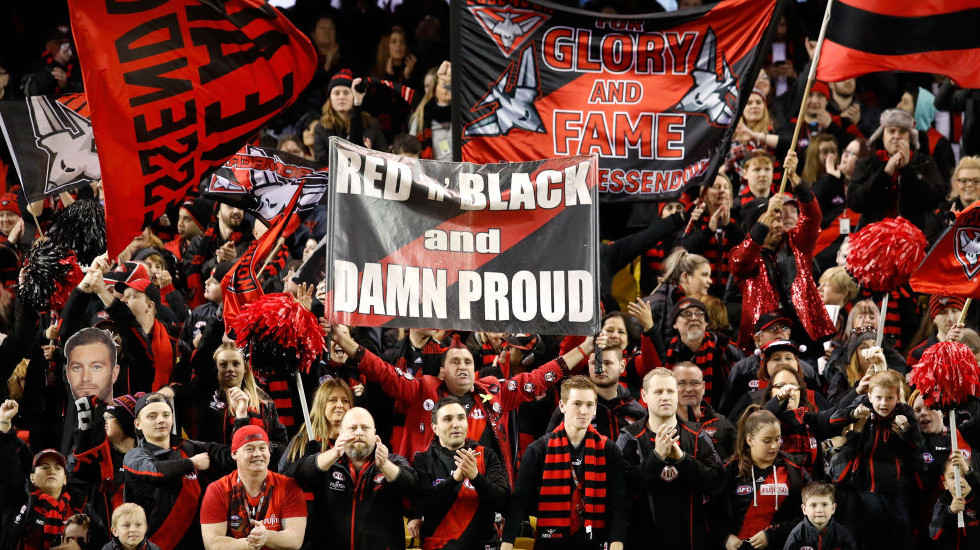
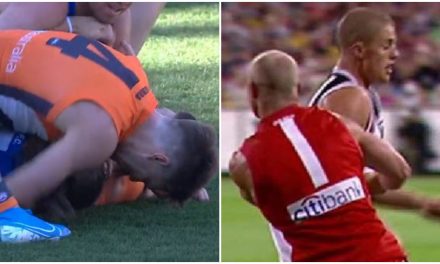
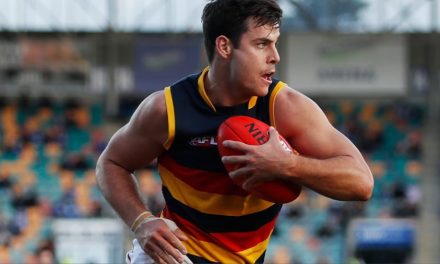
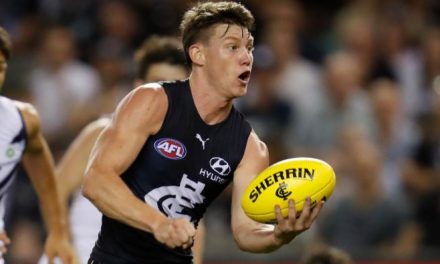
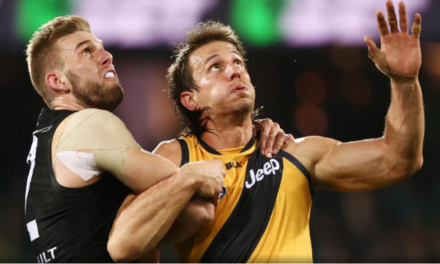






Agreed. I’m not happy Terry. I’m a proud third generation Essendon supporter but I refuse to accept the “It’s been a tough five years” line. We made ground this year and won admirers, then we went two steps back in an embarrassing performance against Sydney. They won’t win it next year but a finals win is a minimum requirement. It might take some hard critique from Worsfold though, as I thought his response after embarrassing losses last year was verging on weak. Go Bombers.
Agreed Ro. I reckon the supplements saga has masked a poor era of the club. We’d be screaming from the rooftops if it hadn’t have happened and we’d stayed just as poor.
Part of me wonders how we would have gone keeping Ryder, Hibberd, Carlisle, Crameri and to a lesser extent Monfries and Melksham. A powerful forward line there.
Give it a break rohan essendon has been through hell for 5 of those years and before that we were looking good . I think we are exactly were most bomber supporters are happy to be , and very proud of our club .
Terry, read the byline mate, Luke Michael wrote the piece, not me. But for what it’s worth, I agree with him.